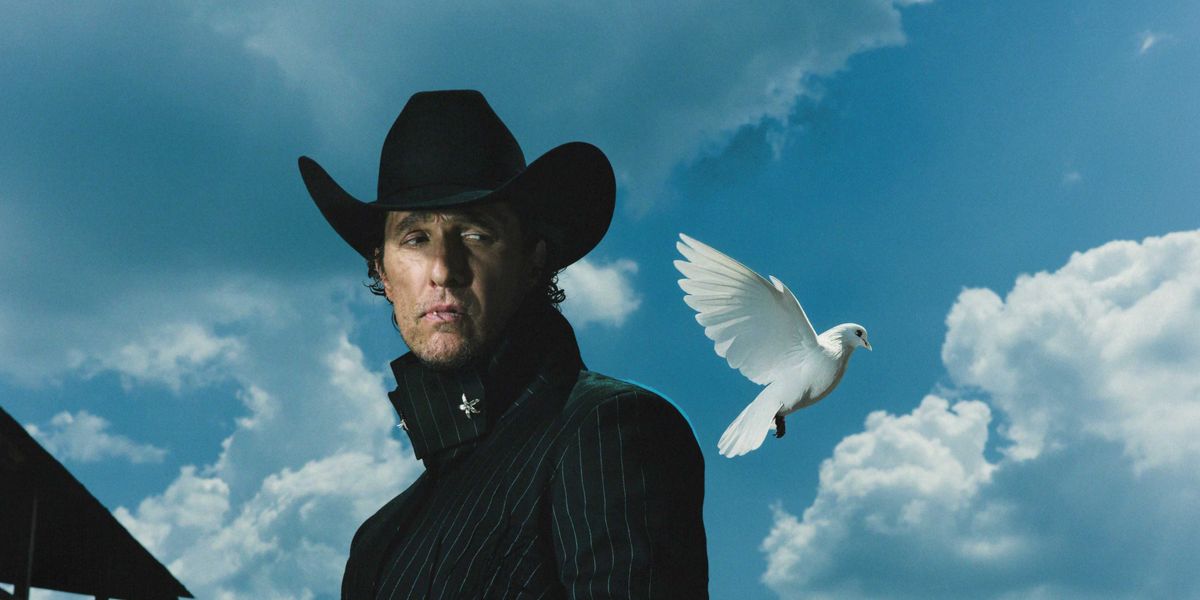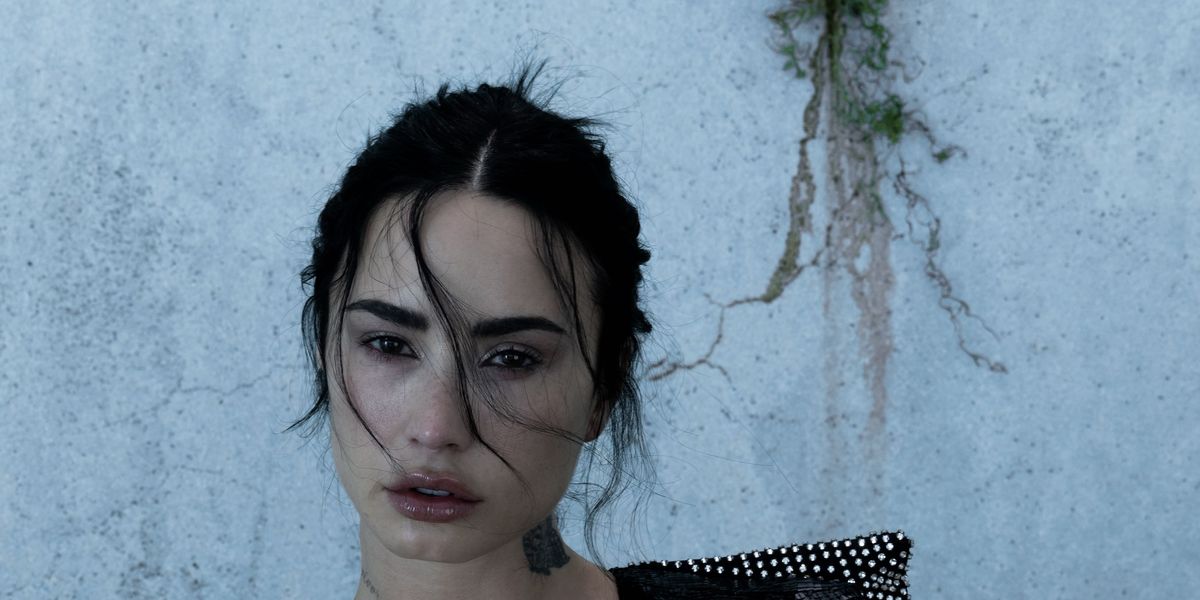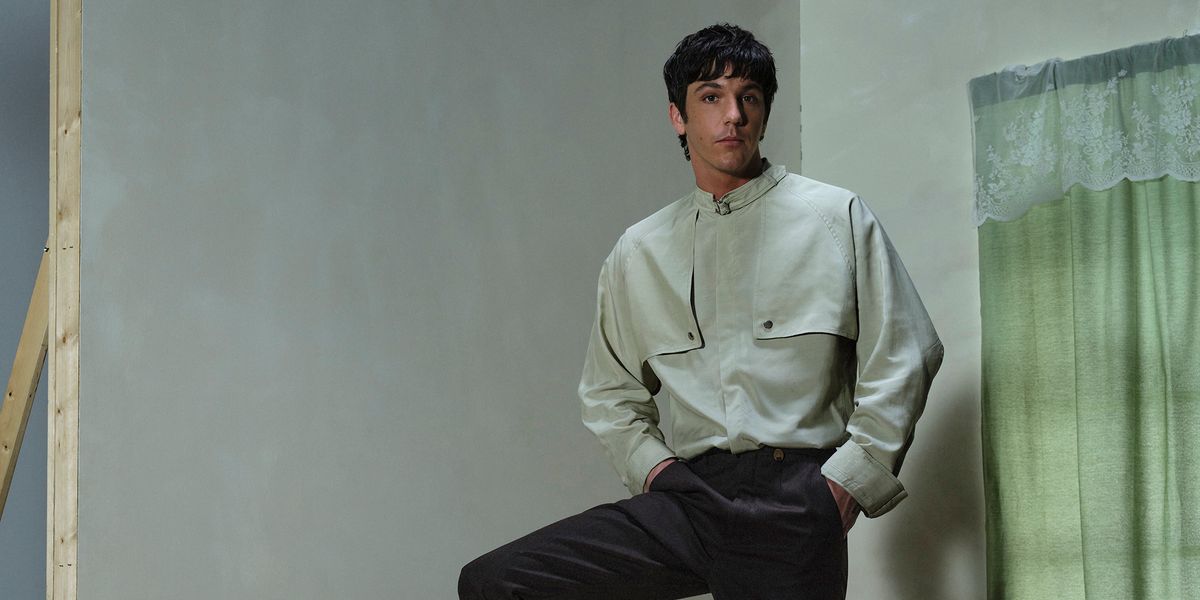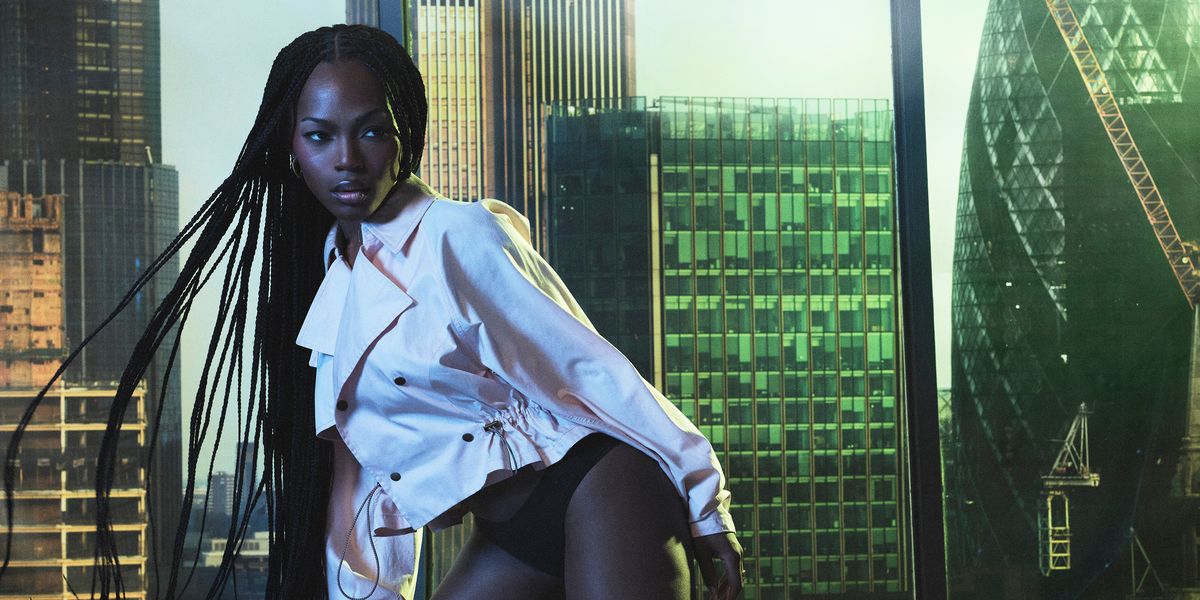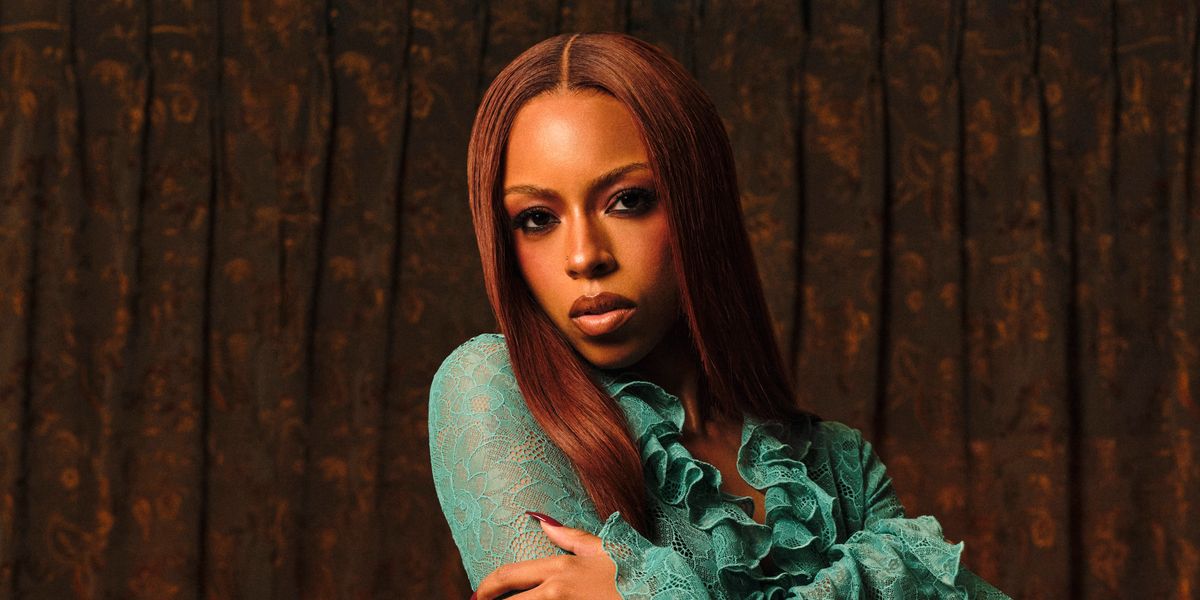
Behind the Bops: Jozzy
By Matt Moen
Jul 06, 2020As unsung heroes of music, songwriters have been behind you're favorite chart-topping hits, record-breaking albums and stan-worthy pop stars without you even knowing it. Too often buried in the liner notes and Genius annotations, they play a vital role in shaping the modern music landscape. They're the ones working alongside your faves to make sure they hit a hook just right. PAPER has teamed up with superstar songwriter Justin Tranter for a June Pride series spotlighting queer voices you may not have known are behind today's biggest bops.
You would be hard pressed to find a song more dominant in the past decade, let alone 2019, than Lil Nas X's "Old Town Road," spending a record-breaking 19 weeks on the same charts that once ruled it wasn't country enough until Billy Ray Cyrus rolled up spitting bars about Maseratis and Fendi sports bras. It was a defining cultural moment and it wouldn't have sounded nearly as good if it wasn't for artist and songwriter, Jozzy.
Related | Behind the Bops: Ilsey Juber
Born and raised in Memphis, Tennessee, Jozzy got her start as a local R&B songwriter before getting called up by Timbaland and Missy Elliot and taken under their wing. As a songwriter, Jozzy's written for artists like Usher, Fergie, Tinashe, Coldplay and Beyoncé and as an artist has collaborated with the likes of Lil Wayne, G-Eazy, Pharrell Williams, Tommy Genesis and more. And as an openly LGBTQ+ woman of color, Jozzy is quite simply the future.
Rounding out the Behind the Bops series, Justin Tranter caught up with Jozzy to talk "Old Town Road," freestyling and how a police raid at her old studio led to her working with Timbaland.

Photography: Chris Paul Thompson
Justin Tranter: First of all, Jozzy, how are you holding up in these crazy times? How do you feel? What's happening?
Jozzy: It's been actually a blessing, I've enjoyed it, man. Two things I learned about: one thing I learned about myself, I realized that my mind isn't as strong as I thought it was. I was really in my head a lot, so I had to pray, step back and just get out of my head. That was tough. As far as music, I've been recording at my house and it's probably been the best experience of my life. It kind of makes me want to get a studio set up at my house. Too much fun.
I've been finding that, too. Obviously, I understand that it's such an extreme privilege to be able to enjoy this time because so many people are suffering financially and health-wise...
Exactly.
But I have been finding that creatively I'm finding that the few things I have written, I'm making sure every fucking syllable counts and it's given me the space to really be specific and dive in, which has been amazing. But anyways, we obviously have to start with the biggest song literally of all time. Two Black queer people made the biggest song of all time.
It's crazy!
I'm sure people ask you about this all the time, I get asked about certain songs so many times, but we have to tell the story. So tell me any part of the story that you can tell about the insane experience of co-writing one of the biggest songs of all time.
I was just with Lil Nas like two or three days ago, I was at his house working on some new music and he was telling me like "Old Town Road" wouldn't have been made if it wasn't for [the fact that] he was going to work on this other song but he had writer's block. So he went to "Old Town Road" and did it. I was like, "Bro!" I looked in his eyes and I said, "Fool, I'm so glad you had writer's block that day!" Because even though I've done a lot of dope songs, this song, like you said, I never expected that. I was sick when it actually happened. I had the flu, but I got a call from my manager and he was like, "Do you want to work with Billy Ray Cyrus?" He didn't even say Lil Nas, he said Billy Ray Cyrus, and I was like no question. I'm from Memphis and I used to watch hella Hannah Montana so I knew who he was.
So, I went to the Record Plant, I met him, I fell in love with him and his wife and they played the song. They gave me the backstory of how the country charts tried to take it off and that shit hit me to the core, because it's messed up how they do Black music and Black artists. Black artists are only supposed to be one-dimensional, but white artists can go down different avenues and excel. They treat Black artists like "You got to stay in this lane, this is your lane." I went in there, I freestyled the melody, it literally took like 15 minutes. It took a little longer for them to record because he hadn't recorded in a minute. The whole idea was I wanted to cross-genres with the sound. I always compare it to Magic Johnson and Larry Bird. I wanted Billy Ray to be Magic Johnson because Lil Nas is already doing the country, so I wanted Billy Ray to have rap bars. Instead of Billy Ray shooting three's how you would think, I wanted him to go in and talk about Fendi sports bras, everything that a rapper would talk about. No moonshine, you're not going to talk about tractors, you're not going to talk about any of those things that you think Billy Ray would talk about.
My mind is so blown. The "Old Town Road" remix just feels like Billy Ray was always supposed to be there. I never even actually thought about that, he's using rap lyrics with his super country voice.
Even when rappers have the beat drop in the beginning and say, "Yo, let's cut the beat." Let him get his four bars off and then bring the drums back in. We want to turn him into a rapper but still keep him Billy Ray. It was just fun and he was with it, anything I told him to do he was like, "Let's do it." That was dope.
Obviously you were having so much fun in the studio and it took you 15 minutes to write one of the most legendary verses of all time, did you ever feel like, "Oh, fuck, this is going to be one of the biggest songs ever" or was it just a great day?
Bro, not at all. I didn't know it was going to be that big. It hit number one the week I was in Coachella, and I remember I was on a cloud, I was like the big shit. Coachella showed me last year how big that song was, it was everywhere that week. Then it just didn't leave the charts, and you become desensitized, you become numb to it. I think, looking back, I didn't realize how big that song was until I look at the charts now and see Nicki Minaj and Doja and Ariana and Justin, they hit number one, but aren't staying longer than two or three or four weeks. It's crazy how that song really stayed 19 weeks and didn't move, I don't get it. It's crazy.
It's fucking nuts. I already said it once, but I'm going to say it again. The fact that two Black queer people created the biggest song of all time with a white, straight country legend. There's progress, we are making fucking progress.
We are. But, I will say Justin, I was talking to my friend about the progress that we are making as far as being in the LGBTQ community and everything, but I still feel like the underdog in the game because I'm not the girly girl-type. I am the tomboy, I am the more androgynous type or however you want to put it, and I still feel like people don't want to talk about you as much. The hip-hop game still has a lot of work to do when it comes to embracing the LGBT community, especially people of color.
If you don't mind speaking on that a little bit, I know, it gets less and less for me because I'm just so public and I kind of force education inside of our industry, but I still hear people say stupid fucking shit around me at least a couple times a month. When I first started in the pop world, I would hear it all the time. I remember early in my writing career where I had to pick and choose my battles, it made me feel like shit when I wouldn't say something was inappropriate because I felt like a little bit of a sellout. Do you ever come across that in your journey, in your work life?
I've had it, it's been playful. It's been very playful. I feel like I've had jealousy, especially like, I never name anybody, but it's been producers who said to me, "Man, they don't want their girls around me in the studio, they feel like I'm going to take them." It's the weirdest shit, they're so insecure, even though they're playing, it's not. I don't care what you say, when you have girls in the studio, guys, it's like a who's got the biggest dick type of show. I'm in the joint just vibing, I'm enjoying the music. For some reason, guys really feel intimidated. Most producers have been cool as fuck, but I've had some who've shown me that they were kind of insecure and then I can't be myself. I don't even want to talk to your girl, I don't even want to talk to the girls because I'm afraid you're going to think I'm trying to talk to them.
There's a passive homophobia in that comment, for sure. They're basically uncomfortable with having a queer person in the room so they're coming up with some sort of joke to justify why they're uncomfortable. It's so fucked up. Let's get back to some music here, I didn't know how much work you did on the Summer Walker album that just went platinum. Can you talk about that experience a little bit?
Yes, man. Summer Walker, she is special. To me, I feel like she is Lauryn Hill crossed with Tracy Chapman when it comes to how she writes her emotions. She's very good at writing her emotions. We did the sessions with London on da Track, I was able to work with her on two songs: "Body" and "Off Of You." "Body" is like people's favorite song; I'm always saying that I wish she would've made that her single because of how much love that it gets.
Then the Tommy [Genesis] song, "Miami," I would love to know what it was like working with her. She's such a strong badass woman as well.
I love assertive, self-confident women and Tommy Genesis is that. She walks in the room and you better be very secure of who you are. You got to carry your energy because she got these eyes that will read through you. So I love her. "Miami," that started our relationship and then we did a song on Euphoria called "I'm Gone." It was a song for me and I featured her on it and then Euphoria just blew it up. It's so crazy, I'm seeing people doing TikToks on it. Working with Tommy, it's just easy. It's certain artists that make your job not even feel like work.
Do you start the majority of your sessions freestyling melodies on the mic? Or what's your go-to process?
Yes, that's it. I like to go in the booth and freestyle, but I'm not even going to front, working with you that day when you sat down and wanted us to like, "So, how are we feeling? What do you think we should write about?" I'm doing that more when it comes to artists because I feel as if sometimes it needs to be what the artist is feeling. When I'm just by myself, it's easy, but jumping into a session with another artist, I really have been using what you were doing just as far as talking to them and just making conversation, seeing where they're at. What can we make a song about? Then I go in there and freestyle a vibe.
That's the only way I know how to work. I'm such a lyrics-first person. I have to know, but I get so jealous of people who can just fucking freestyle. I was working with Nova Wav and they were the first people to ever get me to freestyle, ever.
How did you do though?
I did pretty terrible, there was one bar of melody they used. I was like, "I'll take one bar!" All I needed was one bar!
You've got to get out of your comfort zone. I feel like you're already incredible, your hit game is sick. If you were to get the freestyle down, you can't be touched now, it would be a whole different story.
When quarantine is over, I'm going to have to come and take freestyle lessons from you.
Bro, you, me and Julia [Michaels] just need to do one session. That would make my whole life.
We will make it happen. Okay, so before we finish, we have to talk about your own project and your own artist journey. There's the song with Lil Wayne, which I definitely want to know how that happened. Are you and Wayne friends? Have you written together? He's one of the biggest rappers of all time, how did that come about?
That's my OG, that's my brother, like for real. I met Wayne back when I used to be with Timbaland. I grew up with Tim, pretty much. Right when I graduated high school, I moved to Miami and Timbaland was the guy that I worked with.
Wait, so tell me that story though. I didn't know that's how you got in the industry. How did you meet Timbaland? How did that happen?
It was a producer who was his protege, he was from Memphis and had heard about me just through the streets. I had just left school, I was about to go to this studio called the Trap House and work, and it had just got raided. I was depressed as fuck, like, "What am I about to do with my life?"
Wait. When you say it got raided, can you just clarify what that means?
Cops breaking the doors down, all the producers, all the artists have to get on their knees and everybody went to jail. I was on my way up there, and what's so funny, DJ Lil Larry (my OG, he's an amazing mentor), he's Yo Gotti's DJ and mentor; it had nothing to do with him, it was just the wrong people in the studio. That's what happened. So, I got a call from one of the producers who worked at the Trap House, he was like, "Yo, my boy wants to link with you. Can I give you his number?" I talked to him, and he was like, "Yo, I'm desperate." It was an artist named Agnes Monica [Agnez Mo] from Indonesia. "Yo, I'm working with her, Timbaland, can we fly you down?" I talked to my parents and I was like, "Y'all got to let me do this." I went out there and I ended up staying like five years after that one trip.
You never went home?
I went back home to get my clothes and that was it.
Holy fuck, that's amazing.
It changed my life working with Tim. I was always a fly on the wall at the studios and I met Lil Wayne just outside. He complimented me on my phone case, it was a Keith Haring phone case, and he always fucked with me. I remember I was working with Polow da Don at the studio, he reintroduced me and I had worked on "M.I.L.F. $." That was one of my first big singles that I did with Polow was "M.I.L.F. $" with Fergie. All of that was happening around that time, and then backtrack to now, a year ago, [Lil Wayne] hit me up and he was like, "Jozzy, I always thought you were hard, I'm glad you're about to do your artist thing." He even told me he wanted to sign me as an artist, but at the time, he was going through some situations with Birdman, so he didn't want to put me in any bad paperwork. I respected him for that. He was like, "Whatever you need." I was like, "Bro, I got this song, come to think about it." He gave me two verses, and the first verse was actually amazing and he was like, "Yo, no, I got a better one." Mattman hit me up, "Yo, don't use that first verse, he's got another verse. He's about to send it to you." That's how I knew he was excited about it! He gave me two verses and he came to the video shoot. That's my brother and I love him for life.
That's so fucking cool. How do you approach the writing process differently when you're writing for yourself or for somebody else? Or is it all the same? How do you figure that out?
I'm not even going to front, I'm still learning. I think this is me going to get my artist badge. The reason I wanted to be an artist was because Missy Elliott told me, "Yo, your songs are so hard, the people may not be ready for them so you're going to have to do your own stuff." And that's why I was like, "Man." I had so many dope R&B songs but nobody was taking them, I didn't have anybody to help me shop them. It was just a dark time, I was like, "What is going on? Am I not good enough?" That was what made me want to be an artist, because nobody was taking my songs. Now, people want my songs, and I'm like, "Alright, you can have it." It's funny because my girlfriend is like, "No, don't give it to them, that's your song! Keep your song!" She wants me to keep everything. I'm still learning about picking and choosing what to give and what to keep. Sometimes it speaks to me and I'm like, "This is my song." But for the most part, I don't mind giving it away. I'm not attached to songs like that.
That's a great way to look at it.
Photography: Ryan Schafer
MORE ON PAPER
Entertainment
Matthew McConaughey Found His Rhythm
Story by Joan Summers / Photography by Greg Swales / Styling by Angelina Cantu / Grooming by Kara Yoshimoto Bua
Story by Joan Summers / Photography by Greg Swales / Styling by Angelina Cantu / Grooming by Kara Yoshimoto Bua
30 September
Music
Demi Lovato Is No Joke
Story by Ivan Guzman / Photography by Jason Renaud / Styling by Chris Horan/ Makeup by Loftjet / Set design by Allegra Peyton
Story by Ivan Guzman / Photography by Jason Renaud / Styling by Chris Horan/ Makeup by Loftjet / Set design by Allegra Peyton
15 September
Music
Role Model Isn’t In Kansas Anymore
Story by Tobias Hess / Photography by Richie Talboy / Styling by Angelina Cantú / Grooming by Jerrod Roberts / Set design by Allegra Peyton
Story by Tobias Hess / Photography by Richie Talboy / Styling by Angelina Cantú / Grooming by Jerrod Roberts / Set design by Allegra Peyton
14 August
Internet
Quen Blackwell Takes Over
Story by Ivan Guzman / Photography by Richie Talboy / Styling by Angelina Cantú / Makeup by Kimora Mulan / Hair by Malcolm Marquez / Nails by Kimmie Kyees / Set design by Allegra Peyton
Story by Ivan Guzman / Photography by Richie Talboy / Styling by Angelina Cantú / Makeup by Kimora Mulan / Hair by Malcolm Marquez / Nails by Kimmie Kyees / Set design by Allegra Peyton
11 August
Music
Ravyn Lenae Enjoys the View
Story by Erica Campbell / Photography by Richie Talboy / Styling by Angelina Cantú / Makeup by Matthew Fishman / Hair by Jacob Aaron Dillon / Nails by Kimmie Kyees / Set design by Allegra Peyton
Story by Erica Campbell / Photography by Richie Talboy / Styling by Angelina Cantú / Makeup by Matthew Fishman / Hair by Jacob Aaron Dillon / Nails by Kimmie Kyees / Set design by Allegra Peyton
04 August
